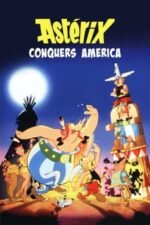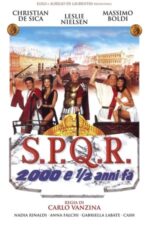Beyond the Colosseum: Exploring Ancient Rome Through Film
Okay, let’s talk about Ancient Rome! It’s a setting that just resonates, doesn't it? We think of gladiators, emperors, legions marching… and instantly conjure up images of grandeur, brutality, and political intrigue. And filmmakers have been wrestling with how to portray this fascinating period for decades – sometimes brilliantly, sometimes... less so (we’ll get to Caligula later!).
What's always captivated me about Rome on film isn't just the spectacle—though those chariot races are undeniably thrilling—but what it allows us to explore. It’s a pressure cooker of ambition, power struggles, and social hierarchies that throws human nature into sharp relief. Think about Hannibal: Rome’s Worst Nightmare. It’s not just about military strategy (and the sheer logistical feat of getting elephants across the Alps is mind-boggling!), it's about vengeance, duty, and what drives a man to risk everything. Hannibal isn’t just a general; he’s a symbol of resistance against an empire that felt invincible.
Then you have films like The Arena, which flips the script by focusing on the often-overlooked experiences of enslaved women. It's inspired by Spartacus, and rightly so – it reminds us that even within the most oppressive systems, the desire for freedom burns bright. It’s a powerful reminder that history isn’t just about emperors and battles; it’s about the lives of ordinary people fighting for dignity.
Now, let’s address the elephant in the room (pun intended!). Caligula: The Untold Story… well, it's infamous. And while its notoriety stems from its explicit content, it also inadvertently highlights a crucial aspect of Roman society – the potential for unchecked power to corrupt absolutely. It’s a cautionary tale, albeit one delivered with a certain... excess. (I remember reading about its production in American Cinematographer years ago; the behind-the-scenes drama was almost as wild as the film itself!)
Even something seemingly lighter like Julius Cheezer, with its anthropomorphic rodents, taps into Roman themes of ambition and legacy. Julius’s quest for cheese is a playful allegory for the pursuit of glory – it's about wanting to leave your mark on the world, even if that mark is… cheesy.
And finally, documentaries like The Untold Story of the Vatican offer a different perspective. They show us how Rome’s influence extended far beyond its political borders and continues to shape our world today, through art, architecture, and religion.
So, what does all this mean? Ancient Rome on film isn't just about recreating history; it's about using that historical setting as a lens to examine universal themes of power, freedom, ambition, and the human condition. It’s a playground for filmmakers to explore complex ideas in visually stunning ways. And whether you’re drawn to epic battles or intimate character studies, there’s a Roman film out there waiting to transport you back in time – just maybe skip Caligula if you're easily squeamish!







































